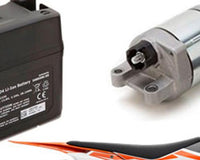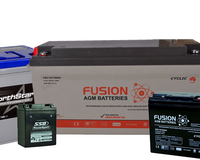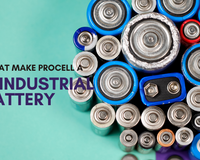There was a point in time where Electric Cars were the biggest joke in the auto industry. They were slow, small and impractical, and you couldn’t really count on them to get you very far. The fossil fuel lobby also wasn’t too happy about their existence.
This clip from The Simpsons gets the point across pretty well.
Luckily, the last eight years have seen the major advances in lithium battery technology (not to mention the emergence of evil genius/Tesla CEO, Elon Musk).
And Now, EV’s are just about the coolest thing on the market. With the ability to get up to 100kph in just four seconds, and a sleek, attractive design, electric cars are thought to be the household car of the future.
A traditional car normally uses a lead-acid SLI (starting, lighting, ignition) battery, or a deep cycle battery, compared to EV batteries that are built to give out power for long periods of time. Traditional auto-batteries are heavier as they use lead, which wouldn’t work in an EV as they require a lighter battery. Lithium batteries are used in EV’s as they are lightweight, energy dense and have many charging cycles.
This battery revolution has been powered by consumer demand for lighter, portable products that last longer in the last 10 years. This has been seen in the uptake of smartphones and tablets. This increased demand has also resulted in a price drop in manufacturing, this includes the price of EV batteries.
They aren’t without their issues, however. As they are lithium, they have a tendency to heat up quickly. They also begin to decline in quality after they have been through a certain amount of charging cycles (normally 1000). The production of EV’s also produces significant carbon emissions, which defeats the purpose of an eco-friendly car.
Electric Vehicles truly are the car of the future, but they’ve still got a long way to go. An EV with over 500km range is still considered to be a luxury car, retailing at well over $100,000.








